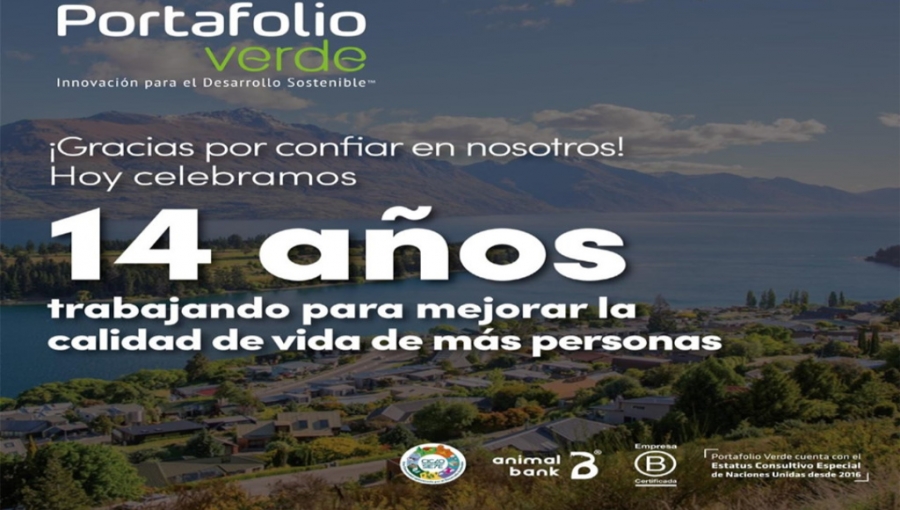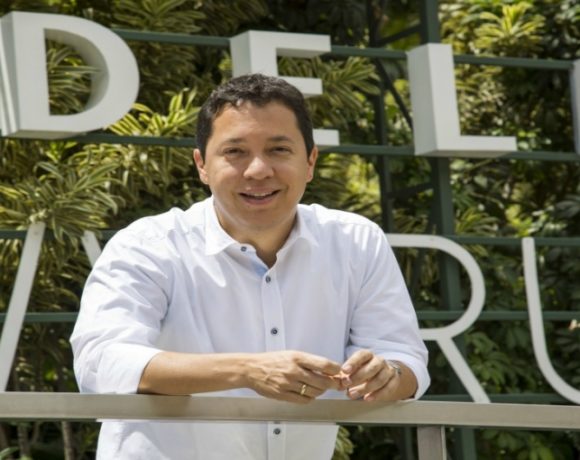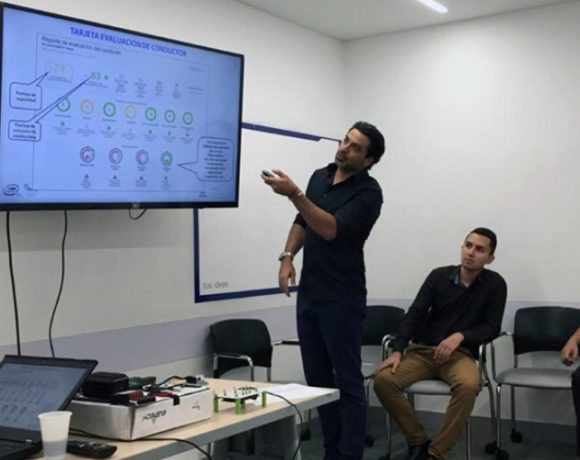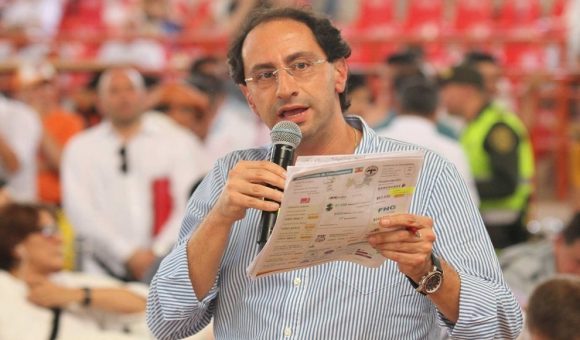Medellin’s ‘Portafolio Verde:’ International, Local Companies Match Mutually Beneficial Social, Environmental Projects with Local Collaborators

A growing list of major local and international companies operating in and around Medellin and throughout Colombia are turning to a novel “Portafolio Verde” (“green portfolio”) consultancy here for projects that are both “green” environmentally as well as financially.
“Portafolio Verde” finds, designs and jump-starts innovative, sustainable environmental and social projects — some of which can serve as legally required “offsets” to environmental impacts from certain industrial developments.
In a presentation to the recent Proantioquia forum here on sustainable development, Portafolio Verde executive director Alejandro Zapata cited numerous such projects over the 14-year history of the organization.
Among the newest projects are under the umbrella of Portafolio Verde’s one-year-old “Animal Bank” initiative.
“Animal Bank” helps find, develop and finance — tapping corporate or individual-donor seed money — suitable biodiversity projects, and then helps train local people and organizations to continue executing such projects.
Also under the “Animal Bank” umbrella is the “Tierras Con Proposito” (“Lands with Purpose”) program, which finds and then matches willing landowners with corporations seeking suitable environmental-impact “offset” projects.
“Through Animal Bank, we seek to support projects focused on conservation and biodiversity, in this way supporting social, environmental and economic development in our region and in our nation,” Zapata explained in his Proantioquia presentation here.
Candidate lands for “Tierras Con Proposito” must have biodiversity and conservation potential.
Such lands would (for example) host natural springs or wetlands; serve as “buffer zones” adjacent to environmentally protected areas; have some strategic importance such as location in highland paramos or tropical dry forest; serve as homes to threatened flora and fauna; and have potential for hosting sustainable forestry, animal husbandry, beekeeping or similarly non-destructive activities on part of the land.
Following Zapata’s Proantioquia presentation, Animal Bank and “Tierras Con Proposito” coordinator Carolina Castaño Restrepo explained to Medellin Herald in a follow-up interview many of the key underlying principles and mechanisms involved in such projects.
If for example some company proposes to develop an industrial or mining project on certain lands that are now legally declared as environmentally sensitive, then Animal Bank would help find a matching, privately-owned parcel somewhere else that either will be purchased by the corporation — or else extended some type of finance or incentives for “green” preservation or restoration — of some-or-all of the parcel.
Unless the land is purchased, the original owner could still keep the land — but then avoid any sort of environmental damage such as logging, mining, cattle grazing or industrial development on specified, dedicated acreage – at very least during the term of the restoration or preservation contract.
In this sort of transaction, Animal Bank could earn a commission on what might be considered something like a real-estate deal. But there’s a difference: the main driver to the transaction is environmental protection rather than conventional “use” of an “offset” property.
“Tierras Con Proposito” could include lands that (for example) currently are partly dedicated to farming or ranching, but with at least part of the land in a natural state — hence aiding biodiversity and environmental conservation.
One such land cited on the Animal Bank web-site is a former cattle ranch near El Retiro, Antioquia, now considered as having potential for eco-tourism. Another property historically dedicated to ranching in San Pedro de los Milagros, Antioquia, is listed on the web site for potential preservation of native forest and water resources.
While this particular parcel in San Pedro de los Milagros isn’t specifically identified on the Animal Bank web-site as a potential site for conservation of the endangered Antioquia Brush-Finch (Atlapetes Blancae) bird, it’s notable that there is now an extraordinary potato farm near San Pedro de los Milagros that just started offering birdwatching-ecotourism, with high probability of seeing this extremely rare bird at this specific site.
Other potential projects cited on the Animal Bank web-site – but looking for matching partners — include conservation of the endangered Blue-Billed Curassow (Crax Alberti) bird as well as the endangered Andean Condor (Vultur Gryphus).
Meanwhile, a successful freshwater-turtle conservation/ecotourism project in Cocorna, Antioquia – with project design and management training provided by Animal Bank – has won financial aid from Medellin-based Grupo Argos, a multinational corporate giant in cement, electric power and highway/airport concessions.
Other founding allies of Animal Bank include Canada-based, environmentally responsible gold miner Continental Gold (developer of Colombia’s biggest new gold mine in Antioquia); the “Renting Colombia” vehicle-leasing division of Medellin-based banking giant Bancolombia; Vanderbilt University (USA); Turner Family Center for Social Ventures (USA); and corporate social-responsibility advisor B Lab (USA).
To date, “Tierras Con Proposito” has already registered 150,000 hectares of various farms and ranches in Colombia — all ready for matching with a suitable corporate project development for environmental “offsets” or (in some cases) possible ecotourism projects.
What’s more, based on projections from the growing popularity of the program, “Tierras Con Proposito” aims to grow to a staggering 11 million hectares registered-and-ready over the next five to 10 years — all over Colombia — according to Portafolio Verde executive Alejandro Zapata.
Interested parties in Animal Bank and Tierras Con Proposito potentially could include all sorts of investors (not just big corporations), as program coordinator Carolina Castaño explained to us.
For example: A company, individual or an organization might be interested in developing an ecotourism hotel at a candidate site. Tapping its database, Animal Bank wouldl analyze the proposal and search for a potential, suitable site, which would include follow-up verification of the actual status of flora and fauna for possible ecotourism.
Individuals also can contribute to Animal Bank, as for example through the allied “100 Apasionados por la Fauna” group. Animal Bank asks such individual donors to contribute at least COP$3 million (about US$875 at current exchange rates) per year.
The organization also continuously employs social media, public events and news-organization interviews in order to reach-out to more landowners interested in registering their properties, as well as companies, corporations and individuals interested in collaborating on its many-varied projects.
















